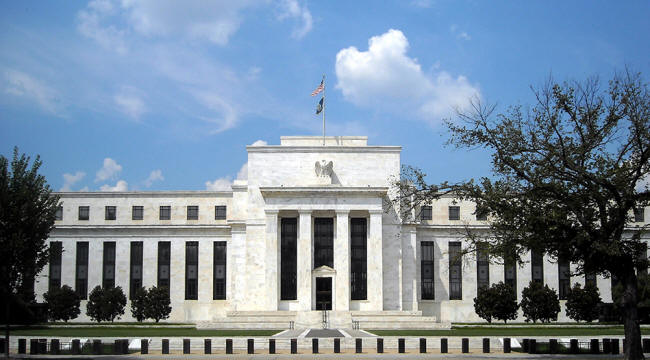|
October 22, 2021 from MISES Website
It is the economy,
This concerns in particular total socialism, as it was realized in the Soviet Union or under National Socialism.
But it is no less evident in the numerous partial socialisms that are featured in the real existing welfare state, in its numerous state "systems."
Budget deficits year in, year out despite high contributions - that is the reality in the state pension system and in the state health system.
The state education system is similar:
No private entrepreneur could afford to let the costs get out of hand in such a way.
Anyone who is in
competition has to keep improving. Only those who have a legal
monopoly and can make use of taxpayers' money if necessary do not
need it.
Here we see gains instead of losses. Here we often find all the other signs of a successfully run company, from the private legal form to the pinstripe-filled boardroom.
We are talking about central banking...
But when people talk about the FED, the ECB or other central banks today, hardly anyone thinks that they are talking about an offspring of the socialist spirit.
After all,
Upon closer inspection, however, it appears that this connotation may not be entirely correct.
Even those central banks that are private-law organizations as in,
...are subject to special laws and their directors are appointed by national governments.
In addition, central banks always and everywhere enjoy a legal monopoly. Their banknotes and their deposit money are largely withdrawn from free competition.
The market participants
are compelled to use the money of the central banks.
But central banks do not need equity or cash deposits. It is they who create cash...
Certain legal limits are
set for them, but in times of crisis,
as in 2008-09 and in 2020-21, these
limits can be relaxed quickly and dramatically. If necessary, they
can also be abolished entirely.
After all, labour usually moves where it is best paid.
Raw materials and capital goods are typically sold to those who offer the highest prices. If you control the printing press, you can also let the real resources flow exactly where you think it is right.
Whether this use of funds
is also profitable plays a rather subordinate role for central banks
(unlike commercial banks). You do not have to work hard and invest
well to cover losses. One push of a button is enough.
The humanitarian with the printing press can finance all changes he wishes for at the push of a button.
This momentous fact has not escaped the attention of socialist theorists.
The Saint-Simonians in France had already grasped it at the beginning of the nineteenth century. They understood that the economy of a country could be controlled particularly easily and safely with the help of the printing press.
A few years later, the demand for the,
...soon also held center
stage in the 1848 Communist Manifesto by Marx and Engels.
In the 1970s, British historian Antony Sutton reported that,
In our day, too, the historical connection between the central banking system and political utopias is being brought back to life.
The directors of the ECB
[European Central Bank] and the FED have already officially
committed to this.
But they also threaten
the free social order as a whole, in that they are preparing to
disempower the open competition of all social forces. They want to
replace this competition with the rule of a nonelected leadership
caste.
Central banks are by their very nature destructive. Even if they are not led by self-proclaimed ecologists and socialists, they favor the cousin, favoritism and the bigwig economy.
The economists of the Austrian school have shown, among other things,
Central banks cannot be reformed, they must be abolished...
|


